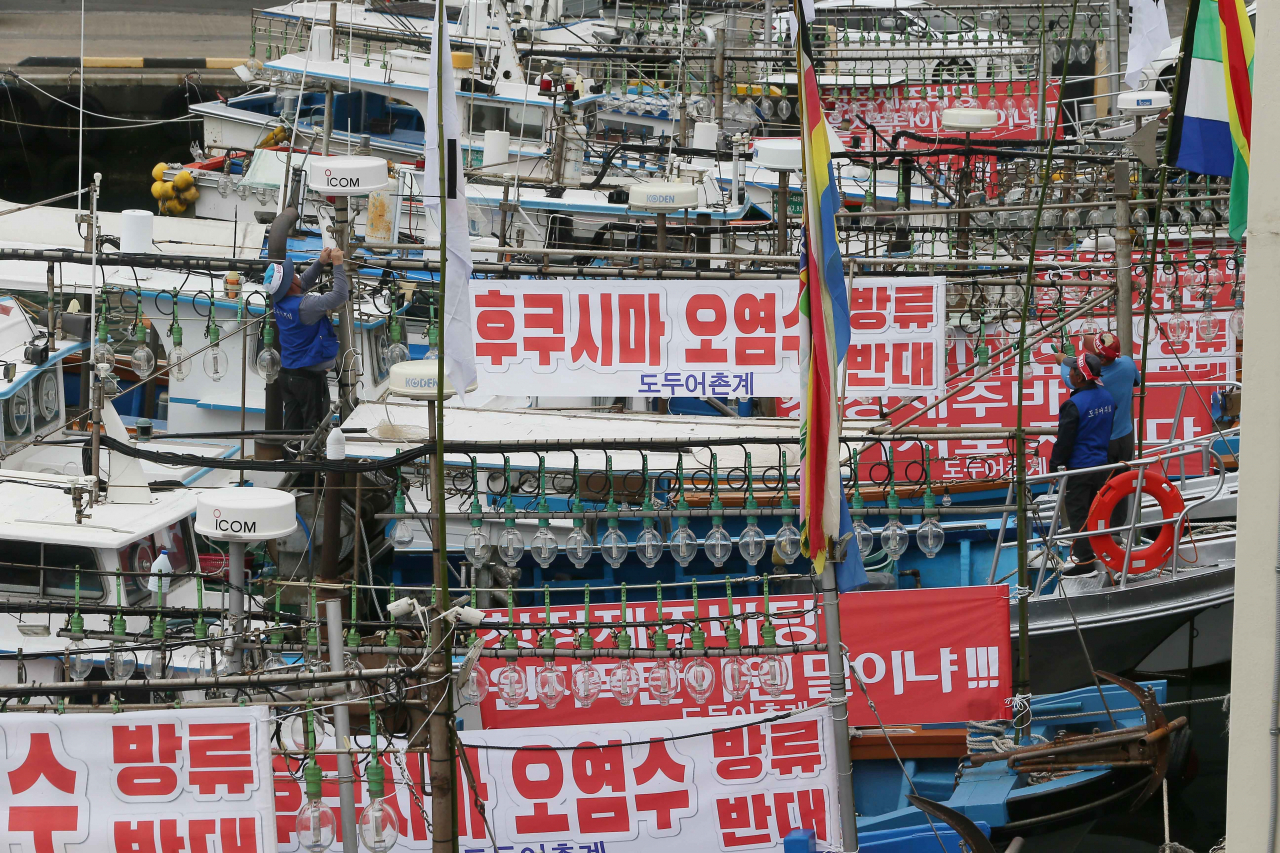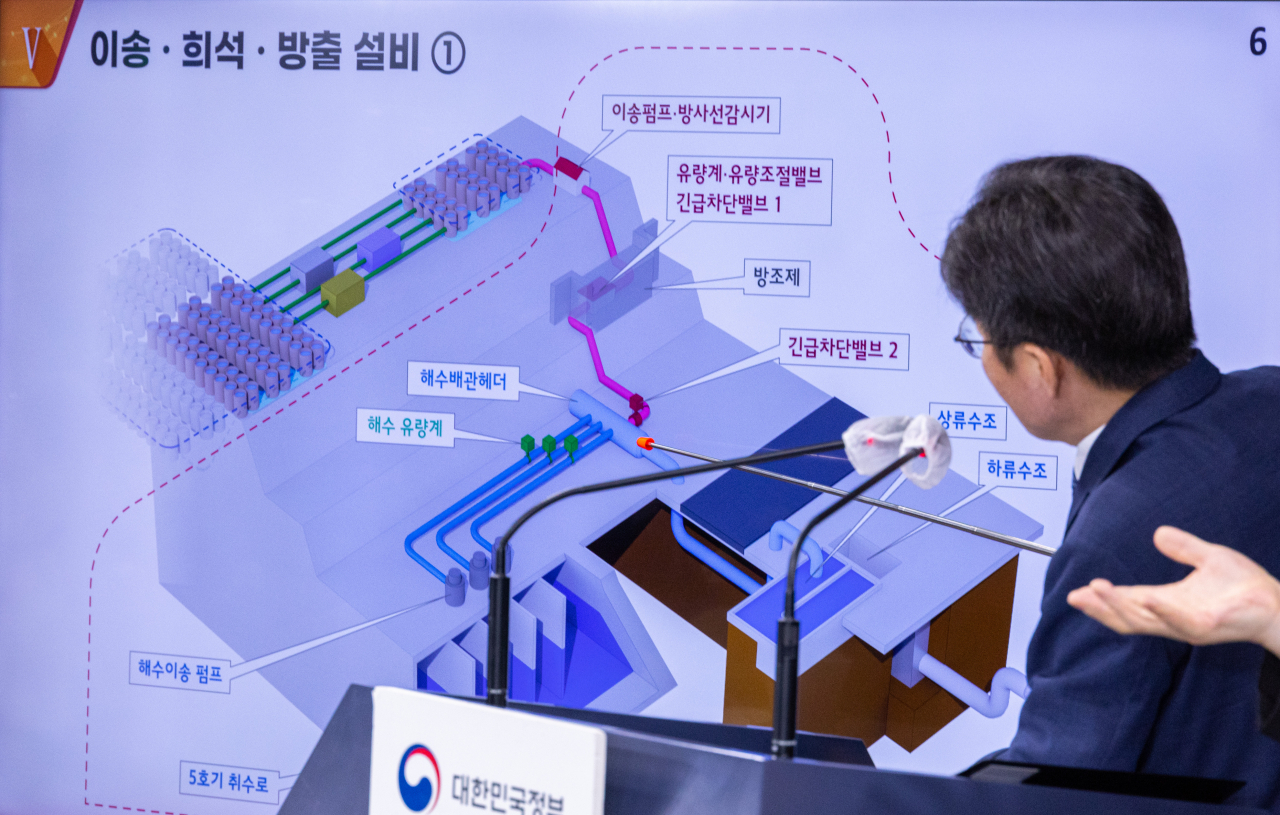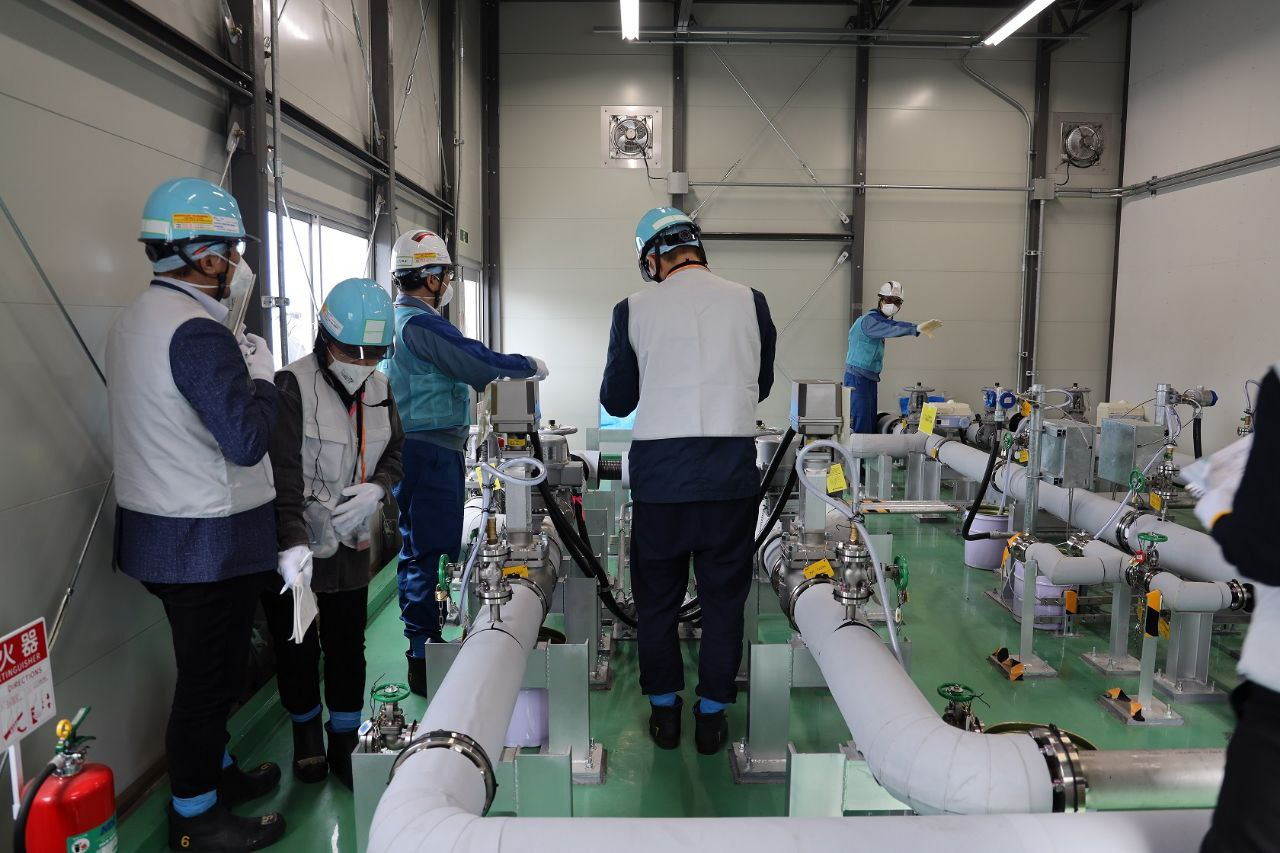 |
This photo shows fishermen on May 22 protesting on Jeju Island against the anticipated discharge of wastewater from the Fukushima Daiichi Nuclear Power Plant. (Yonhap) |
A type of radioactive isotope in the over 1.3 million tons of wastewater being collected at the destroyed Fukushima nuclear power plant and planned for discharge by as early as this summer has been found at levels beyond those earlier suggested to be safe by the Japanese government, a wastewater safety review report by the International Atomic Energy Agency showed Thursday.
The finding has raised the need to ensure the treated wastewater is diluted before it is discharged, so that the wastewater discharge might potentially be of little harm to neighboring countries including South Korea.
According to the report, which corroborated analyses of the treated wastewater by six laboratories including the Korea Institute of Nuclear Safety, the activity concentrations of tritium in the treated water were estimated to be at least 148,900 becquerels per liter.
The wastewater filtered through Japan's Advanced Liquid Processing System at the Fukushima Daiichi Nuclear Power Station contained more tritium than what was stipulated in Japan's national regulatory standards for discharge, 60,000 becquerels per liter.
This figure is in line with expectations that tritium is one of the two radioactive elements -- along with carbon-14 -- that is hard to remove through the filtering process at the quake- and tsunami-hit Japanese power plant, which suffered multiple reactor meltdowns in 2011. According to a government official on condition of anonymity, the figures for the concentrations of radionuclides in the IAEA report are for the treated wastewater before dilution.
Tritium is one of the 28 types of radionuclides included in the earlier radiological environmental impact assessment by plant operator Tokyo Electric Power Company. Of them, 12 radionuclides were detected in the treated wastewater in at least two out of six participating laboratories -- from the United States, Austria, Switzerland, France, Korea and Japan.
The IAEA report also included 58 additional types of radionuclides beyond what was included in the earlier TEPCO assessment, none of which were detected "at significant levels," according to the IAEA report.
 |
Nuclear Safety and Security Commission Chairperson Yoo Guk-hee briefs reporters on the site visit of Korea's inspection team of the wastewater treatment facilities of the Fukushima Daiichi Nuclear Power Plant on Wednesday. (Yonhap) |
The findings, however, are not likely a point of concern if Japan dilutes the treated water to have 1,500 becquerels or less per liter of tritium as planned, two Korean experts said.
Given that the average concentration of tritium in the wastewater before treatment stood at 620,000 becquerels per liter as of 2021, the latest figure indicates a reduced level of concentration in the wastewater post-treatment, said Joo Han-gyu, president of the Korea Atomic Energy Research Institute.
The treated wastewater "has a reduced concentration of radionuclides -- except for tritium -- to meet legal standards," said Jeong Yong-hoon, a nuclear and quantum engineering professor at the Korea Advanced Institute of Science and Technology, adding that diluting the treated wastewater should reduce the concentration of tritium and other nuclides.
The dilution facility was one of the subjects of the inspection by a team of 21 Korean nuclear experts led by Nuclear Safety and Security Commission Chairman Yoo Guk-hee the previous week.
Yoo has declined to reveal the team's full inspection results, saying that it will take more time to acquire more data and review its findings, in a briefing held Wednesday. But he said the team "confirmed the sea water pump is installed properly to meet the goal of dilution with adequate capacity."
Meanwhile, the IAEA report also identified inconsistencies between the laboratories in terms of the sample assessment results for three out of the 28 types of radionuclides, including Iodine-129. The results for this radioactive isotype by multiple laboratories could not be agreed on with a high level of confidence.
Seeing it the other way around, this means that the six participating laboratories evaluated 98 percent of the nuclides at a 99.7 percent confidence level, according to the IAEA.
Such inconsistencies "would cause little trouble for (IAEA's) assessment," Jeong said.
 |
This photo shows a group of Korean experts inspecting the wastewater treatment facilities at the Fukushima Daiichi Nuclear Power Plant on May 24. (Tokyo Electric Power Co.) |
Lim Seung-cheol, secretary general of Nuclear Safety and Security Commission, told reporters Thursday it is "premature to make an assessment on the (quality of the) treated wastewater," given that two more follow-up assessments by the IAEA are up and coming.
This most recent tentative assessment came amid concerns about the health impacts of long-term, low-dose exposure to tritium as a result of Japan's multi-decade plan to release the wastewater into the sea. Minor progressive Jinbo Party leader Yoon Hee-sook said in a statement Wednesday that the Korean inspection team that visited the treatment facilities has failed to address the "biological threat two times more serious than cesium" that the wastewater discharge plan could cause. The final assessment by IAEA is poised to be announced later in June.







